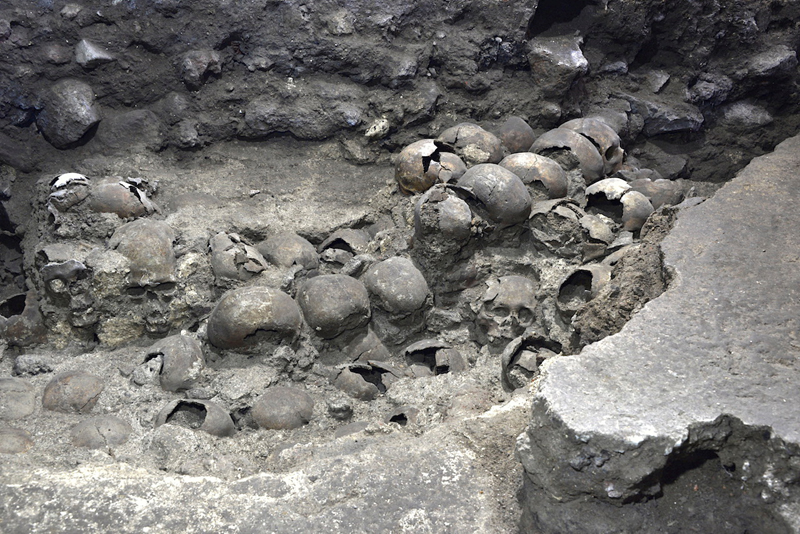Mexican archaeologists uncover facade of Aztec skull tower in capital
MEXICO CITY: Archaeologists have unearthed new sections of a famous Aztec tower of human skulls dating back to the 1400s beneath the center of Mexico City, authorities said on Friday.
The team uncovered in March the facade and eastern side of the tower, as well as 119 human skulls of men, women and children, adding to hundreds previously found, according to the National Institute of Anthropology and History (INAH).
The tower, approximately five meters (16.4 feet) in diameter, was first discovered five years ago.
It is believed to be part of the Huey Tzompantli, a huge array of skulls that struck fear into the Spanish conquistadores when they captured the city under Hernan Cortes in 1521.
The cylindrical structure is near the huge Metropolitan Cathedral built over the Templo Mayor, one of the main temples of the Aztec capital Tenochtitlan, now modern day Mexico City.
"The Templo Mayor continues to surprise us, and the Huey Tzompantli is without doubt one of the most impressive archaeological finds of recent years in our country," Mexican Culture Minister Alejandra Frausto said in a INAH statement.
Archaeologists have identified three construction phases of the tower, which dates back to between 1486 and 1502.
The tower's original discovery surprised anthropologists, who had been expecting to find the skulls of young male warriors, but also unearthed the crania of women and children, raising questions about human sacrifice in the Aztec Empire.
"Although we can't say how many of these individuals were warriors, perhaps some were captives destined for sacrificial ceremonies," said archaeologist Raul Barrera.
"We do know that they were all made sacred," he added. "Turned into gifts for the gods or even personifications of deities themselves."






